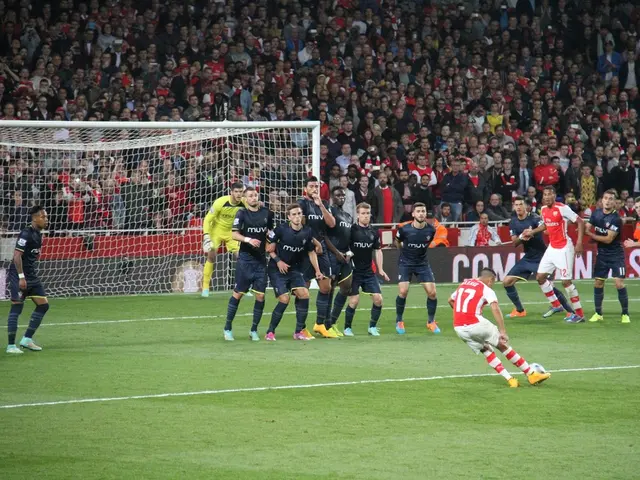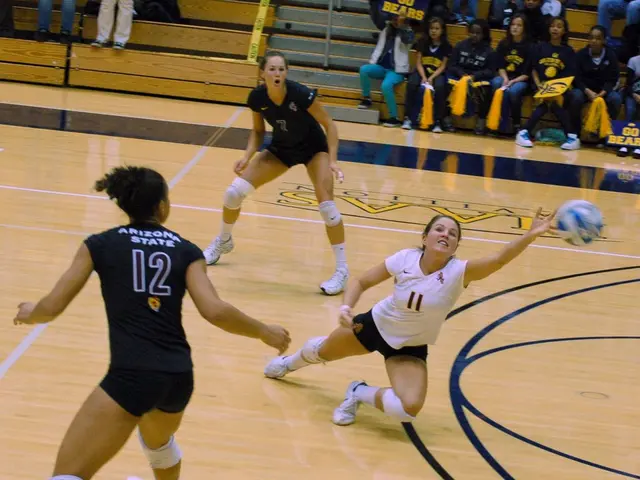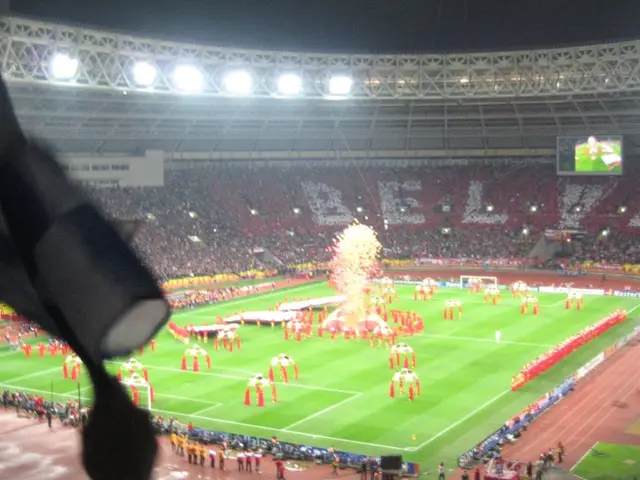Straight Shootin' with UFC Guru Thomas: "Americans Can Be Damn Arrogant About MMA"
"In the realm of Mixed Martial Arts, an air of American arrogance often prevails"
By Mike | Facebook | Twitter | Whatsapp | E-Mail | Print | Copy Link
Climbing the ranks of Mixed Martial Arts (MMA) is no walk in the park. Once you crack the Ultimate Fighting Championship (UFC), you're in the big leagues. However, European fighters, particularly those from Germany, often struggle to break through, and it's the Americans themselves who are the problem, according to an industry insider.
Germany has yet to produce many top MMA fighters in major organizations like the UFC. "There are reasons for that," says Din Thomas to ntv.de, a former MMA fighter who's now an analyst for the UFC and ESPN. "I love untapped talents. There are tons of fighters here with great potential; you just have to uncover it and give them a shot." That means both a stage to showcase their skills and the opportunity to make mistakes and learn. Thomas, 48, has a soft spot for Germany, having trained at MMA Spirit in Frankfurt am Main for several months in 2014. "I appreciated the atmosphere and the people, the hospitality." Since then, he's been a regular in Germany, recognizing the thriving MMA market here thanks to promotions like Oktagon. With sold-out arenas, throngs of spectators, and a TV product that's strikingly similar to the UFC's, there's no denying the scene's prominence.
However, there's a reason why such a high-profile German product isn't acknowledged in the U.S. "For whatever reason, Americans can be damn arrogant about this. If something doesn't have a connection to the U.S., then it's second-rate. I don't buy that, and I feel compelled to showcase what's happening here."
Thomas points to Oktagon's attendance records, including the 58,000 spectators at Frankfurt's stadium, as a starting point. "That's a good start, but the American market wants to know: Can the athletes compete in the top leagues? Until European or German fighters prove they can compete on that level, it will be hard to say: 'This is one of the major organizations.'" Once they do, Oktagon will find its way onto the U.S. MMA map.
Stream Oktagon MMA events on RTL+...
Building respect in the U.S. market takes time and patience. "We've seen how quickly promoters come and go. Only if you've built trust over a long period of time, then success and respect are inevitable," says Thomas.
Making it to the UFC or other major U.S. organizations "is partly the responsibility of the European or German fighters," Thomas emphasizes. "No U.S. organization would fly a German fighter in to compete somewhere. But if the MMA pros are already in the U.S. for training, they could be placed there. Another way is to compete in Cage Warriors or Brave FC. Both organizations already have a name in the U.S."
The success of European MMA depends on American respect and understanding of the continent's scene. By recognizing the contributions and development of MMA in Germany, international partnerships and the sport's global growth can be fostered, enhancing its reputation and accelerating its acceptance across the country.
Sports enthusiasts in the USA might want to broaden their horizon and acknowledge the growth of mixed martial arts in Germany, as European fighters, particularly those from Germany, strive to break through in major organizations like the Ultimate Fighting Championship (UFC). American arrogance towards MMA outside the U.S. hinders the recognition of untapped talents and potential champions, as noted by Thomas, a UFC analyst and former MMA fighter.







